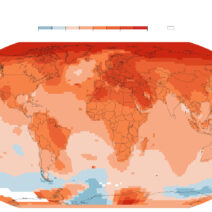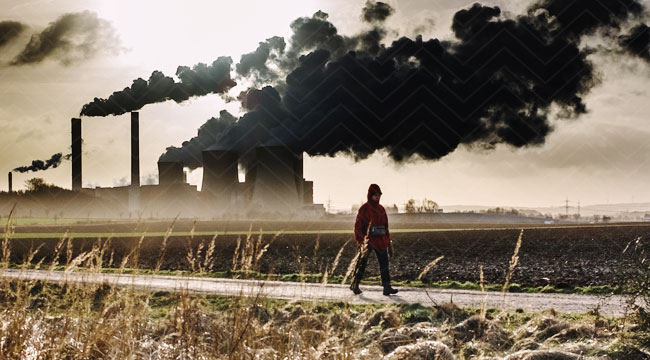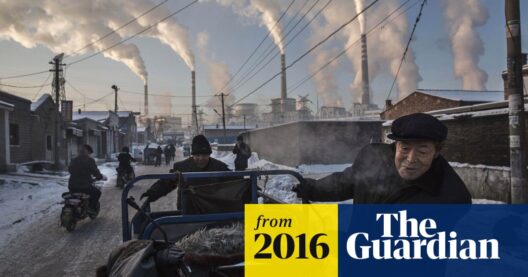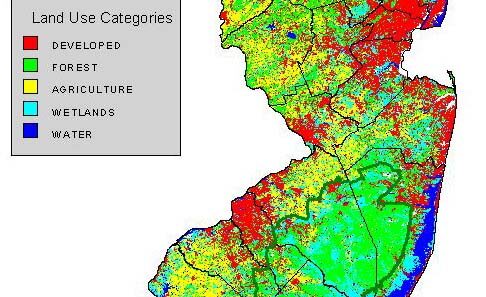As the specter of climate change looms ever larger, the urgency for effective solutions has never been more palpable. Traditional approaches to environmental preservation—while noble in intention—have often fallen short in producing the requisite transformative impact. Enter technology. The interplay between innovation and environmental conservation is fraught with both promise and skepticism, leading to a pressing question: Can technology truly reverse climate change? This exploration delves deep into the multifaceted realm of climate technology, examining novel solutions, potential limitations, and the fundamental need for a paradigm shift in our approach to the planetary crisis.
The advancements in technology are witnessing an unprecedented boom, with innovations such as artificial intelligence, carbon capture, and renewable energy sources at the forefront of the climate conversation. Solar panels, wind turbines, and geothermal systems represent a mere fraction of the arsenal available in the fight against climate change. However, the excitement surrounding these technologies must be tempered by an understanding of their limitations. While they are instrumental in reducing emissions and fostering sustainable practices, they alone are insufficient to completely reverse the course of climate degradation.
Consider the concept of carbon capture and storage (CCS). This groundbreaking technology aims to sequester carbon dioxide emissions produced from industrial processes, preventing them from entering the atmosphere. By capturing this greenhouse gas and storing it underground, CCS holds a tantalizing promise for mitigating the effects of climate change. Yet, experts argue that reliance on such technologies can lead to complacency, dulling the critical need for systemic changes in how we produce energy and consume resources. In essence, carbon capture should be seen as a supplementary measure, not a primary solution.
Moreover, the rapid expansion of clean energy technology signifies not solely a methodological shift but also a profound philosophical transformation. Transitioning from fossil fuels to renewable energy sources marks the apex of an ideological evolution. This transition demands not only new technology but a collective shift in societal values and economic frameworks. The ethics of sustainability cannot be overlooked; they must underpin every technological innovation aimed at reversing climate change. To be truly effective, technologies must operate alongside a paradigm that prioritizes ecological stewardship over short-term profit maximization.
Alongside renewable energy, the burgeoning field of biotechnology presents fascinating potential in addressing climate issues. Genetic engineering, for instance, is being deployed to create crops that are more resilient to environmental stresses, thus optimizing agricultural productivity even under adverse conditions. These innovations could mitigate the agricultural contributions to greenhouse gas emissions, addressing food security while simultaneously reducing the carbon footprint of traditional farming practices. However, the ethical implications surrounding genetic modifications invoke passionate debates, calling into question the balance between innovation and the unforeseen consequences that may accompany tampering with nature.
Urban planning also stands as a significant vector through which technology can orchestrate a response to climate change. Smart cities, imbued with sensor networks and data analytics, can optimize energy use and reduce carbon emissions through efficient public transport systems and energy grids. These innovations promise not merely to remediate existing environmental issues but to create frameworks for sustainable living that can serve as models for future urban development. Yet, the disparity in technological access between affluent and marginalized communities raises concerns. Without equitable distribution of these innovations, disparities could deepen, exacerbating social and environmental injustices.
The race for technological innovation is also accompanied by a wave of entrepreneurial enthusiasm. Startups focusing on climate solutions are proliferating, infusing the market with creativity and fresh perspectives. From air purification devices utilizing nanotechnology to biodegradable materials emerging as alternatives to plastics, young innovators are challenging the status quo. This entrepreneurial spirit exemplifies the potential of synergistic collaborations between technological advancement and environmental stewardship. However, the commercialization of such technologies requires vigilant regulatory frameworks to ensure that environmental safeguards are not sacrificed at the altar of market viability.
Moreover, public engagement and education are paramount in this narrative. Technological solutions, no matter how advanced, cannot operate in a vacuum. The societal buy-in—fueled by awareness and advocacy—is crucial. People must be informed of the benefits and functionalities of these technologies, but they must also be encouraged to alter their consumption patterns and lifestyles. The integration of technology into everyday life necessitates active participation from all societal strata, fostering a collective commitment to sustainability.
As we venture further into the 21st century, the convergence of technology and environmental ethics presents an arena rich with possibilities. The technologist’s toolkit is burgeoning with innovations aimed explicitly at curbing climate change, yet the critical lens of ethical scrutiny must persist. Can technology reverse climate change? The answer, inherently complex, appears contingent upon how effectively we weave ethical considerations into our technological pursuits. The journey towards sustainability is not merely a race for innovation; it is a call for a radical reimagining of our relationship with the Earth.
The synthesis of technology and environmental responsibility is pivotal. The time has come to not only innovate but to innovate with intention, ensuring that the solutions we forge today are the foundations for a sustainable tomorrow. The race against climate change is not a sprint but a marathon, and the path forward must be navigated with both ingenuity and care.








